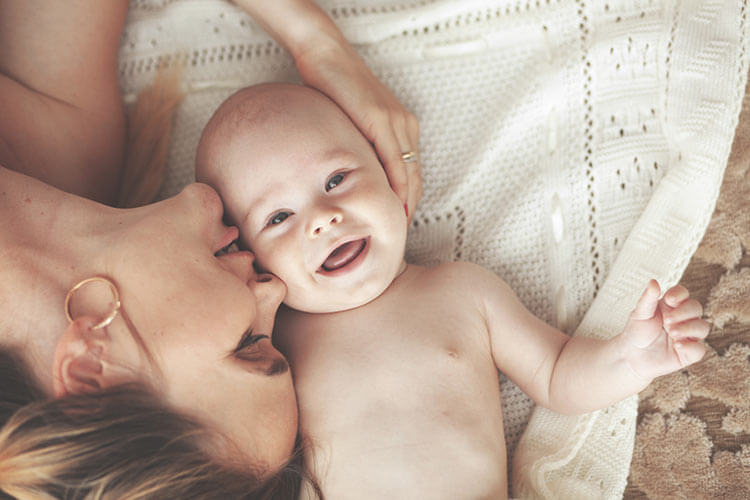Ask any mom how important her baby’s health is to her and she’ll likely say it’s worth any sacrifice. But when it comes to breastfeeding, it’s not always so simple. I’ve talked to lots of moms who struggle with breastfeeding, whether because their babies aren’t latching on, they can’t produce enough milk to keep up with their baby’s appetite or other breastfeeding problems. In these cases, the bottle is the only option… and that’s OK.
These women are NOT bad moms and they’re NOT sacrificing their children’s health. In fact, there is very little evidence that bottle feeding is bad for babies; most evidence simply supports that breast milk provides more benefits to a baby’s health.
A study conducted by the Norwegian University of Science and Technology’s Department of Cancer Research and Molecular Medicine, found that the placenta, not breast milk, is more critical to healthy development in babies, and another study, from Health Services Research, found that most studies conducted on breastfeeding benefits actually overstate many of its health benefits.
But from a social perspective, women in these situations are made to feel like failures – like they’re not good mothers or are just incapable of something they should be able to do. Nothing could be further from the truth. According to a study by the World Health Organization and American Academy of Pediatrics, 85 percent of moms planning to breastfeed only had a breastfeeding goal of at least three months; however, only 32.4 percent met their goal. Many of us are in the same boat.
(Mostly) Non-Disputed Breastfeeding Benefits:
What are some of the advantages of breastfeeding? Here are some of the most widely accepted:
Improves Mental Health. In several key studies, babies who were breastfed showed higher IQ levels than non-breastfed babies. The most recent study, conducted by Brazilian researchers analyzing over 6,000 babies since 1982, found that those who were breastfed generally had higher IQ levels, earned more and stayed in college longer than non-breastfed babies.
Helps to Calm Baby. Monique Prince, MSW, LCSW, clinical social worker and parenting coach for tameyourwildchild.net explains there is a hormone called oxytocin released in breast milk by the mother’s pituitary gland that has a significant calming effect on the child.
Reduces Risk of Sudden Infant Death Syndrome (SIDS). A 2007 study by the Tufts-New England Medical Center Evidence-Based Practice Center in Boston, found that breastfeeding reduced SIDS risk by 36 percent compared to not breastfeeding. A more recent study found a 60 percent reduction in the risk of SIDS as a result of breastfeeding.
Promotes Uterine Involution in Moms. The same hormone oxytocin helps promote healthy uterine health. According to Dr. Alicia Dermer, MD, IBCLC, a New Jersey family practitioner, babies’ repeated sucking simultaneously produces contractions in a mother’s uterus. These contractions help the uterus return to its non-pregnant state and may also help prevent postpartum hemorrhage.
May Reduce Asthma. The same 2007 study from Tufts-New England Medical Center found that babies who were breastfed for at least three months had up to 27 percent less risk for getting asthma later in life than non-breastfed babies, and 40 percent less risk for those coming from families with a history of asthma problems.

Breastfeeding Tips:
If breastfeeding is your goal, experts suggest following some best practices:
- Chemicals hurt! Tara Gesling, CHHC, AADP, author of The 180 Degree Wellness Revolution and a mom who breastfed her daughter for two years, suggests becoming aware of the food you eat and the product you use on your body. “Preservatives, pesticides, herbicides and GMOs can all affect the quality of breast milk and the health of you and your child.”
- Eat a high-quality diet for at least the first six weeks postpartum. Helene Byrne, founder of BeFit-Mom, says too many women want to move directly to losing the baby weight, compromising the amount of calories they take in. She points out that new moms should eat no less than 1,500 calories per day regardless of weight or height. “Eating less than this can reduce the infant’s intake of breast milk.”
- Don’t be afraid of the nipple shield. “Nipple shields are not the devil,” says Dr. Meena Chintapalli of A thru Z Pediatrics in Texas. “Sometimes a newborn has trouble latching on due to prematurity or because some women have smaller nipples. Nipple shields, used with a lactation consultant’s direction, can help give the baby a start on proper feeding and the baby can be weaned off once it learns to latch correctly.”
- Stay hydrated. Breast milk is mostly made up of water, so Prince recommends drinking plenty of the clear fluid and avoiding caffeine products in order to keep the milk flowing.
- Ignore judgement. Many moms face the social pressures of breastfeeding, especially when it comes to breastfeeding in public. Elaine Taylor-Klaus, CPCC, ACC, parenting coach for ImpactADHD and mother who nursed three children, says she needed to get righteous and confident about breastfeeding. “Don’t hesitate to pump wherever you need in order to keep nursing as long as you want. Ignore the judgement of others and stay clear on what’s important to you.”
Regardless of how you approach feeding your infant, remember that “mother knows best.” And no, I’m not talking about the nagging mother or mother-in-law, I mean you.

